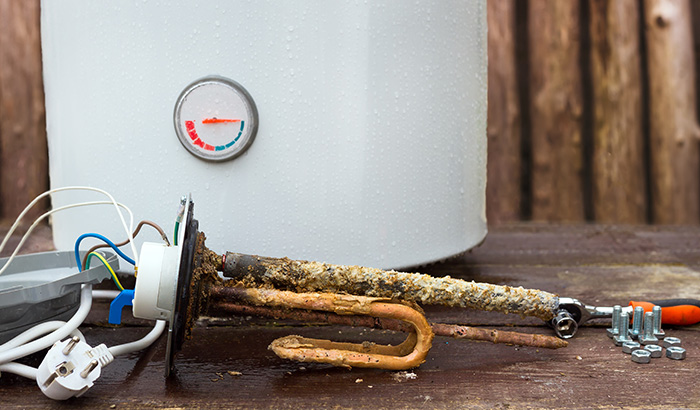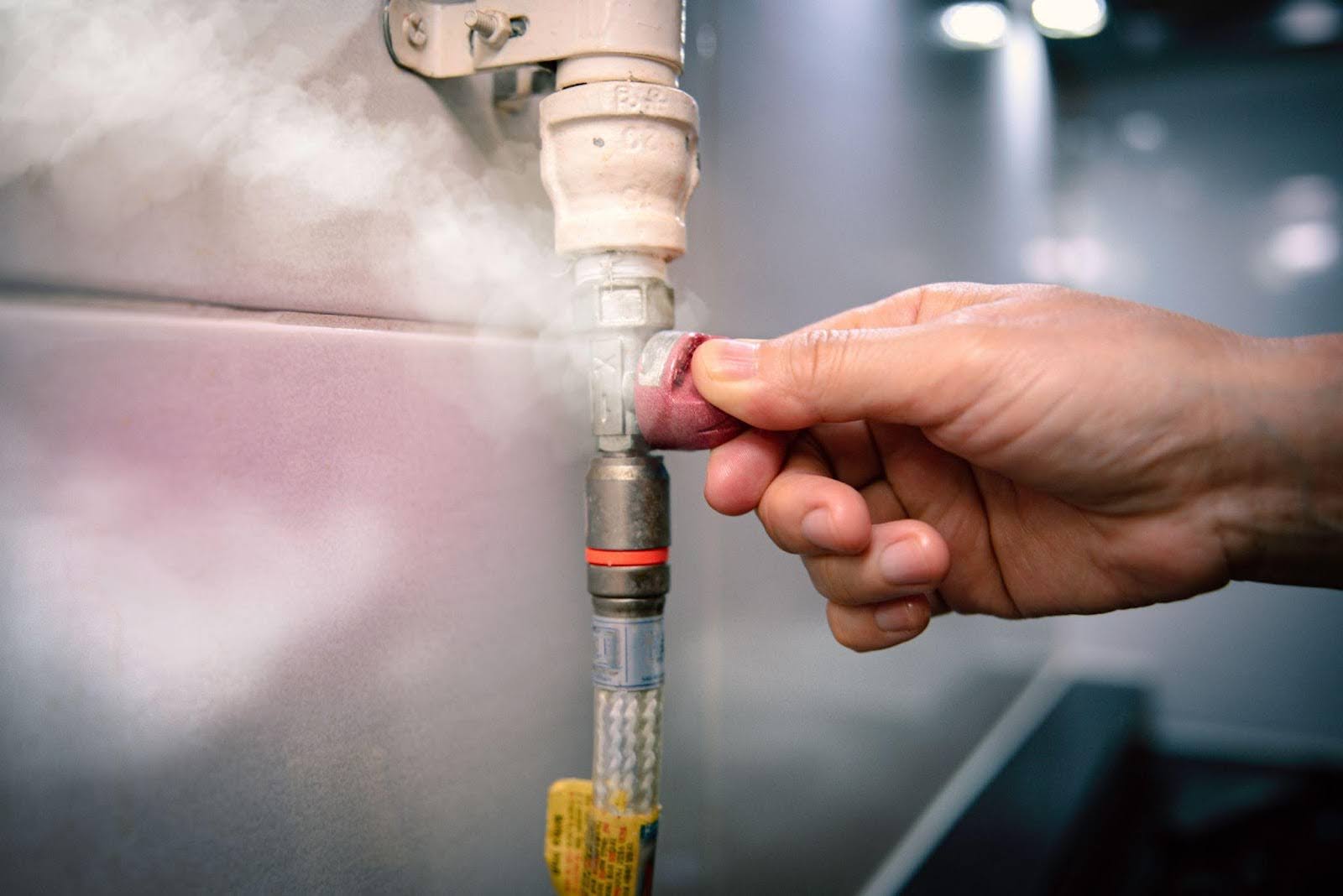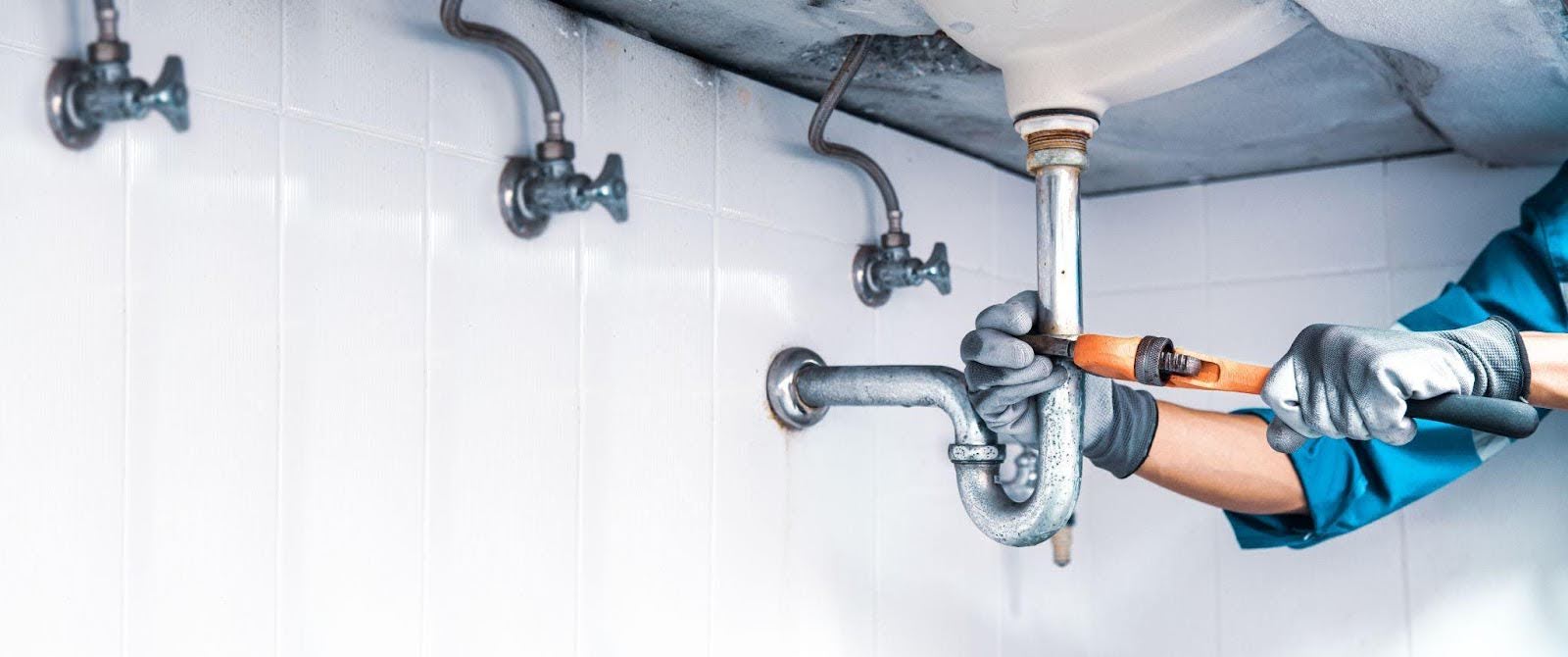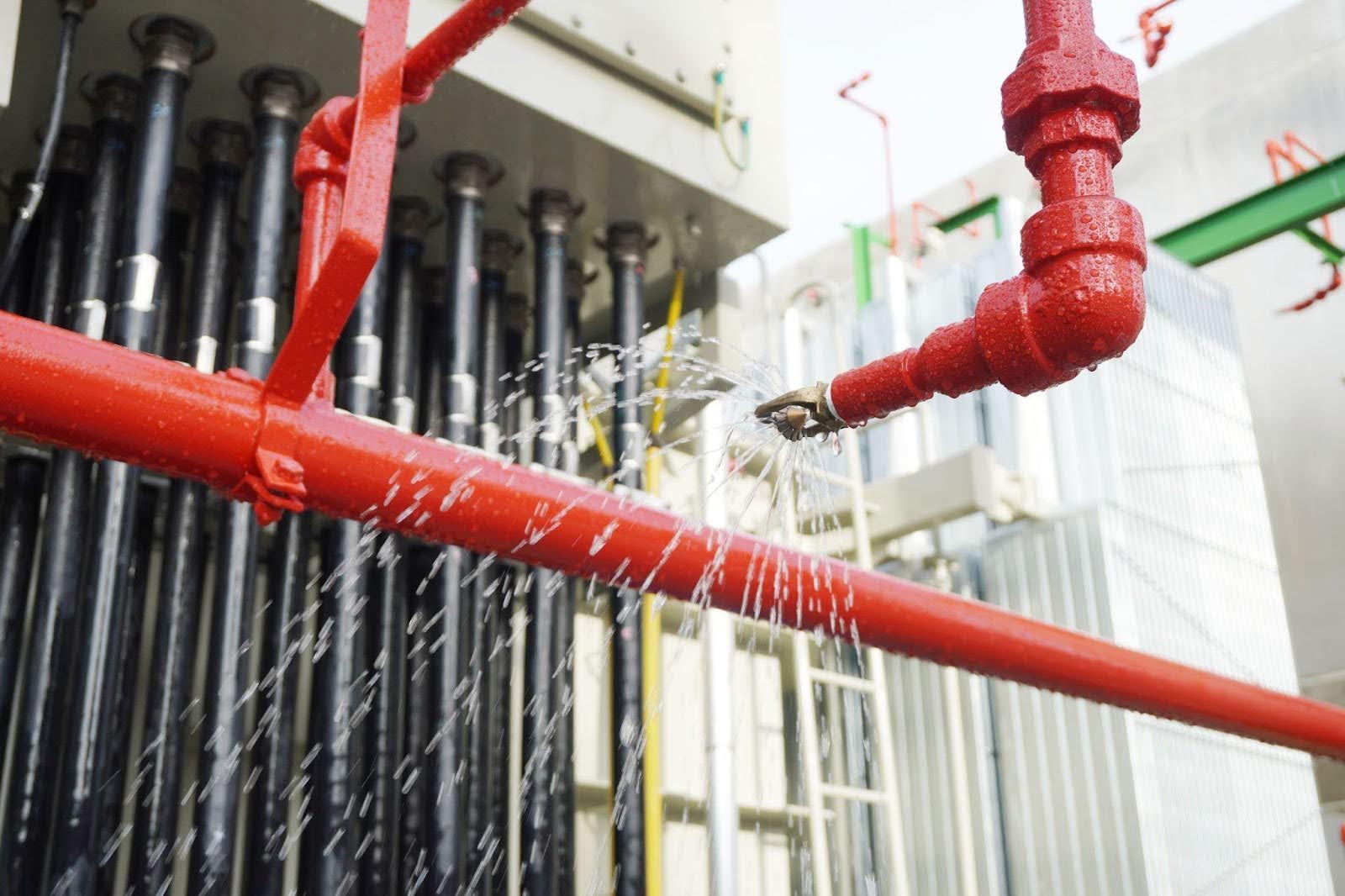Have you ever wondered how long your trusty water heater will stand by your side, ensuring those warm showers and sanitized dishes?
Most standard water heaters, particularly those with tanks, are designed to serve you well for about 8 to 12 years. If you have a tankless or on-demand water heater, you’re in luck! These sleek units can often work seamlessly for up to 20 years, thanks to their different operational dynamics.
But remember, these are just averages. With the proper care and conditions, some heaters might pleasantly surprise you by outliving their expected lifespan.
Factors Contributing to Your Water Heater’s Longevity
- Usage: Heavy daily use can reduce a water heater’s lifespan, similar to a frequently driven car. If your home often taps into hot water, your unit may age quickly. Still, with attentive care, you can combat the wear from frequent use.
- Maintenance: Consistent maintenance is a water heater’s fountain of youth. You can boost your heater’s longevity and maintain its efficiency through routine checks and proactive measures like annual tank flushing.
- Water Quality: The local water quality directly impacts your heater’s health. Hard water, rich in minerals, can speed up sediment accumulation, affecting efficiency. However, a water-softening system or routine tank flushes can counteract these challenges.
While every water heater comes with an estimated lifespan, how we treat it and the conditions it operates under can either curtail or extend its years of service. Knowing and understanding these factors gives you an edge, ensuring you get the most out of your appliance.
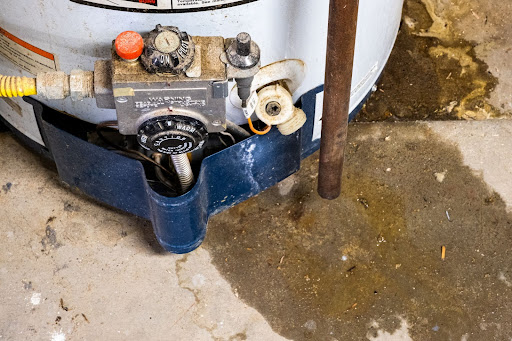
Common Symptoms of a Malfunctioning Water Heater
Ah, the joys of a reliable water heater! Warm showers, easy dishwashing, and a myriad of other comforts. But every now and then, even the most steadfast appliances can throw us a curveball.
When it comes to water heaters, certain signs and symptoms should prompt you to take a closer look. Let’s uncover some of the most common indications that your water heater might be singing a bit off-key:
- Missing Hot Water:
Starting your day with cold water instead of warm? A lack of hot water could point to issues with the heating element, gas supply, or a tripped breaker.
- Not-So-Hot Supply:
If your hot water seems to deplete faster, it might indicate sediment buildup, a thermostat issue, or a tank size not matching your needs.
- Overheating Issues:
Consistently scalding water could mean the thermostat is set too high or malfunctioning. A simple check or adjustment might be the fix, but consult an expert if in doubt.
- Unexpected Noises:
Hearing unusual sounds from your usually silent water heater? Sediment buildup can cause rumbling or popping. Addressing this ensures the longevity and efficiency of your unit.
- Worrying Wet Spots:
Water around your heater signals possible leaks from a weakened tank or faulty component. Addressing this promptly can save you from greater damage and heater failure.
In recognizing these signs, you’re one step closer to ensuring the longevity and efficiency of your water heater. Whether it’s a simple fix or a sign to consider a replacement, being in tune with your heater’s “symptoms” will always keep you ahead of the curve.
Repairing Your Water Heater
Before rushing into replacing your water heater, consider the option of repairing it.
Benefits of Repairing Your Water Heater:
- Budget-Friendly Now: Repairing your water heater can offer significant cost savings upfront. Addressing a specific issue is typically more economical than purchasing a new unit, making it an attractive option for those mindful of their budget.
- Eco-Friendly Choice: Choosing to repair not only supports your finances but also the environment. By rejuvenating your current unit, you decrease the need for new production and minimize waste. It’s a win-win for both you and Mother Earth!
- Quick Turnaround: In our busy world, time matters. Repairs are usually faster than total replacements, ensuring you regain your hot water supply with minimal delay compared to buying and setting up a brand-new unit.
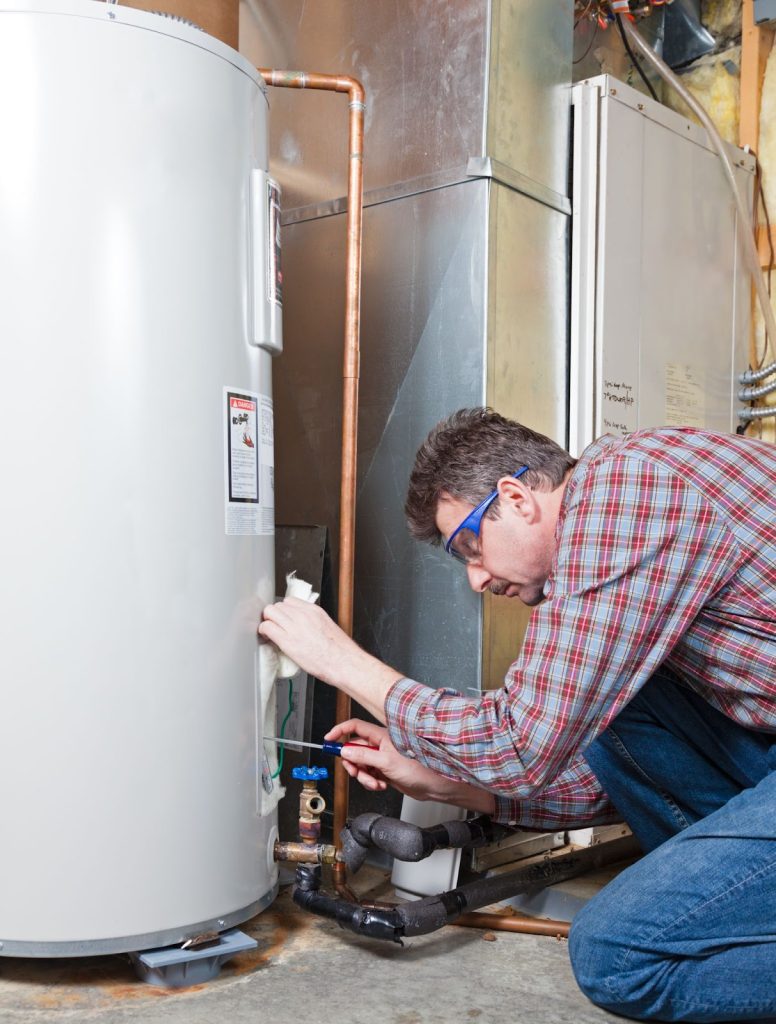
When Repairing Makes the Most Sense?
- Still in its Youth: If your water heater is on the younger side of its average lifespan (think a tank model under 8 years or a tankless version under 15), then repair might be the way to go. Newer models are more likely to benefit from a repair, giving them several more years of efficient service.
- Small Hiccups, Not Major Headaches: Not all water heater issues are catastrophic. Some problems, like a malfunctioning thermostat or a heating element in need of replacement, are relatively straightforward to fix. In such cases, a repair can effectively address the issue without the need for a comprehensive overhaul.
- The Balance of Economics: Always weigh the cost of repairs against the potential expense of a new unit. If a technician quotes a repair cost significantly lower than a replacement, and your heater still has some good years left, a fix might be the more economical route in the long run.
Sometimes, a well-executed repair can breathe new life into your existing unit. It’s about assessing the current state of your heater, considering the benefits, and making an informed decision.
Replacing Your Water Heater
Sometimes, in the life cycle of our trusty home appliances, we reach that point when an upgrade is not just an option but a necessity. With water heaters, this decision can present some advantages over simply repairing your broken water heater.
Benefits of Replacing Your Water Heater:
- Boosted Energy Efficiency: Embrace the advancements of modern water heaters. Newer models promise improved efficiency, offering potential savings on energy bills. Upgrade to maximize the value and efficiency of every hot water use.
- Meet Today’s Water Needs: With changing family dynamics or lifestyle shifts, your water needs evolve. From added bathrooms to longer baths, a new water heater efficiently caters to these growing demands, ensuring uninterrupted hot water.
- Peace with Superior Safety: A new water heater provides the comfort of advanced safety features and renewed warranties. This translates to reduced stress about unexpected issues, letting you enjoy a worry-free experience for years to come.
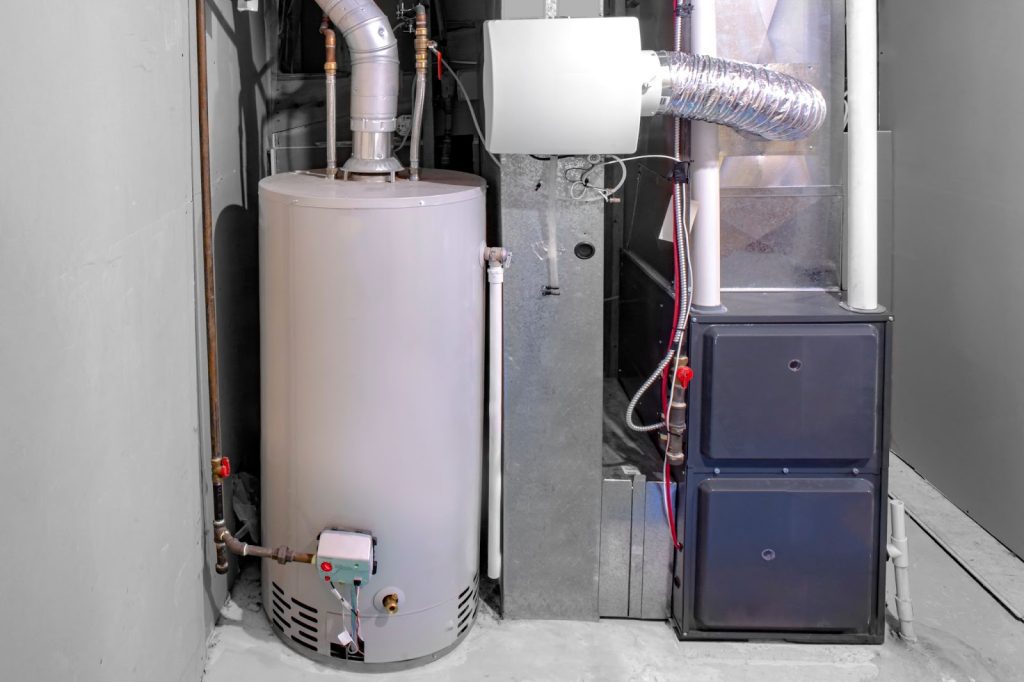
When Making the Switch Is Your Best Bet?
- Time’s Ticking on Your Trusty Unit: If your water heater is reaching the twilight of its average lifespan or has already surpassed it, an upgrade might be in order. As units age, their efficiency can wane, and the risk of major breakdowns can increase, making replacement a proactive choice.
- Déjà Vu with Repairs: When you find your technician’s number on speed dial due to frequent water heater glitches, it’s a telltale sign that your unit might be on a downward spiral. Regular breakdowns and repairs not only disrupt your daily routine but can also become a financial burden. In such scenarios, investing in a new unit can often be more cost-effective in the long haul.
- Rising Costs on Your Energy Statement: If you’ve noticed your energy bills creeping up without a significant change in your household’s hot water usage, it could point to an inefficiently operating water heater. Over time, the cost savings from a more energy-efficient model can justify the initial investment of a replacement.
While repairs can be a fantastic way to extend the life of a moderately aged or slightly troubled water heater, there comes a time when replacement emerges as the wiser, more efficient choice. By evaluating your current unit’s age, performance, and the advantages of newer models, you can decide what warms your home and your heart.
DIY Solutions vs. Hiring Professionals: Navigating the Best Path for Your Water Heater
Many homeowners feel empowered to tackle household issues on their own. A quick online search can yield numerous DIY tutorials for almost any water heater concern. On the flip side, there are professionals trained specifically in the nuances of water heater maintenance and repair.
Let’s dive deep into the pros and cons of both approaches to help you decide the most suitable path for your water heater needs.
DIY Solutions
Pros:
- Cost Savings: Going the DIY route often means you only have to bear the cost of parts and tools, which can lead to immediate savings.
- Learning Experience: DIY projects can be a wonderful way to familiarize yourself with your household systems, boosting your confidence and skill set for future challenges.
- Immediate Attention: Without the need to schedule an appointment, you can address the issue as soon as you identify it, provided you have the necessary tools and parts.
Cons:
- Potential for Errors: Without specialized training, it’s easy to overlook certain nuances or misdiagnose an issue, leading to bigger problems.
- Safety Concerns: Water heaters, especially gas-powered ones, can be hazardous if mishandled. There’s a risk of accidents, especially if one is unfamiliar with the system.
- Possible Warranty Voidance: Some warranties become null and void if a non-professional tampers with the unit.
Hiring Professionals
Pros:
- Expertise on Hand: Professionals bring years of training and hands-on experience. They can diagnose issues swiftly, recommend the best solutions, and often fix the problem efficiently.
- Safety First: Trained technicians understand the safety protocols and have the necessary tools to handle any challenges, ensuring the well-being of your home and family.
- Guaranteed Work: Most professionals offer a warranty on their services, giving you peace of mind knowing that the repair or maintenance is backed by a guarantee.
Cons:
- Cost Implications: Hiring a professional might be more expensive upfront compared to DIY solutions, as you’re paying for both parts and labor.
- Waiting Time: Depending on their schedule, you might have to wait for an appointment slot, which could delay the resolution of the issue.
Both DIY solutions and professional services have their merits. If you’re confident in your abilities, have the necessary tools, and the issue is minor, a DIY approach might suit you.
However, for more complex problems, safety concerns, or if you’re unsure about the diagnosis, leaning on professional expertise is a wise choice. Remember, the goal is a well-functioning, safe, and long-lasting water heater. Choose the path that aligns best with this objective and your comfort level.
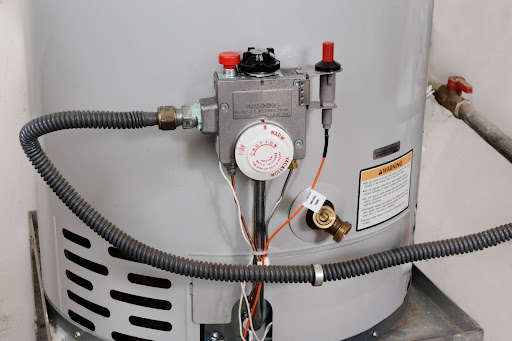
Salisbury Plumbing Has the Solution for Your Broken Water Heater
Salisbury Plumbing offers more than just repairs; we provide holistic solutions for water heater issues, from diagnostics to replacements. Our seasoned professionals handle everything from burst pipes to leaky faucets.
For over 15 years, Lehi, UT residents have leaned on our steadfast commitment to quality. We prioritize transparent pricing and preventative measures to avoid unexpected costs. Call us today at 385-503-5488 or visit our website for a free estimate on any of your plumbing needs.
toto slot

